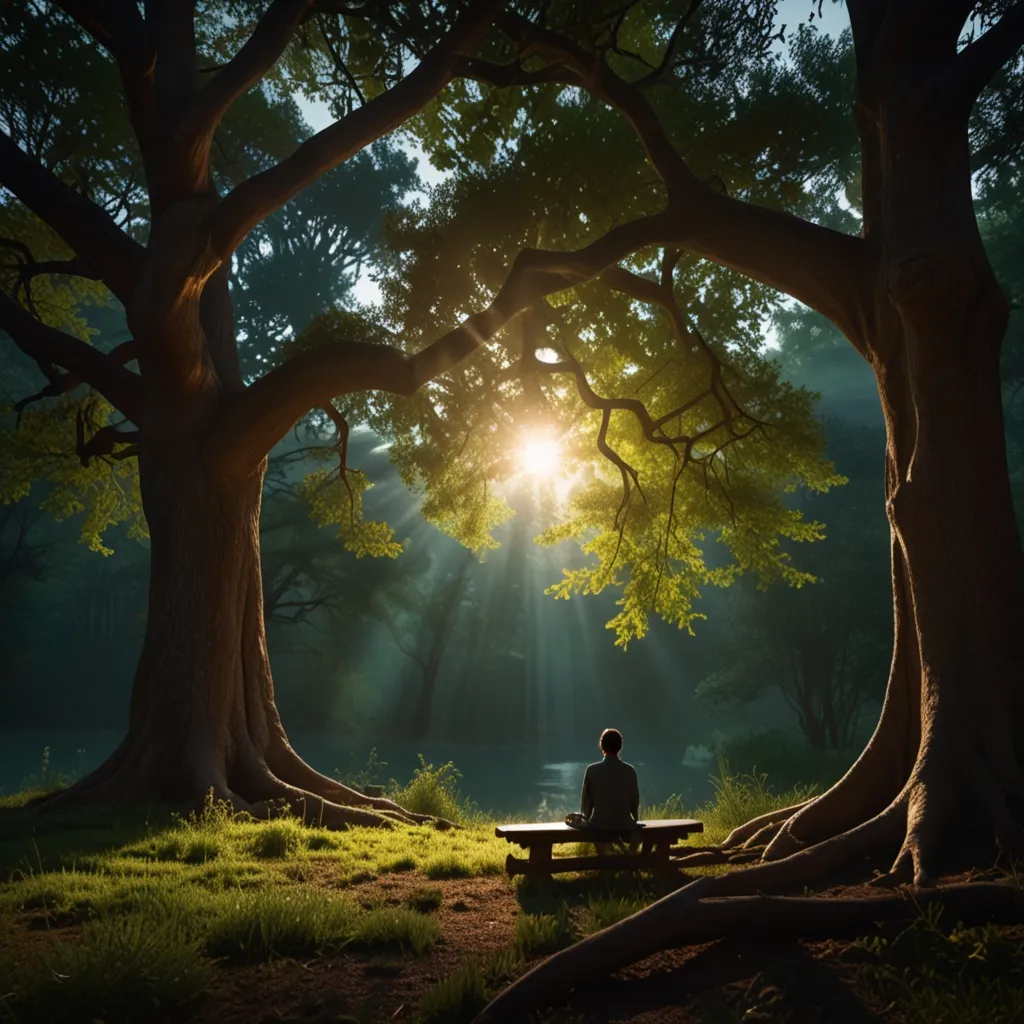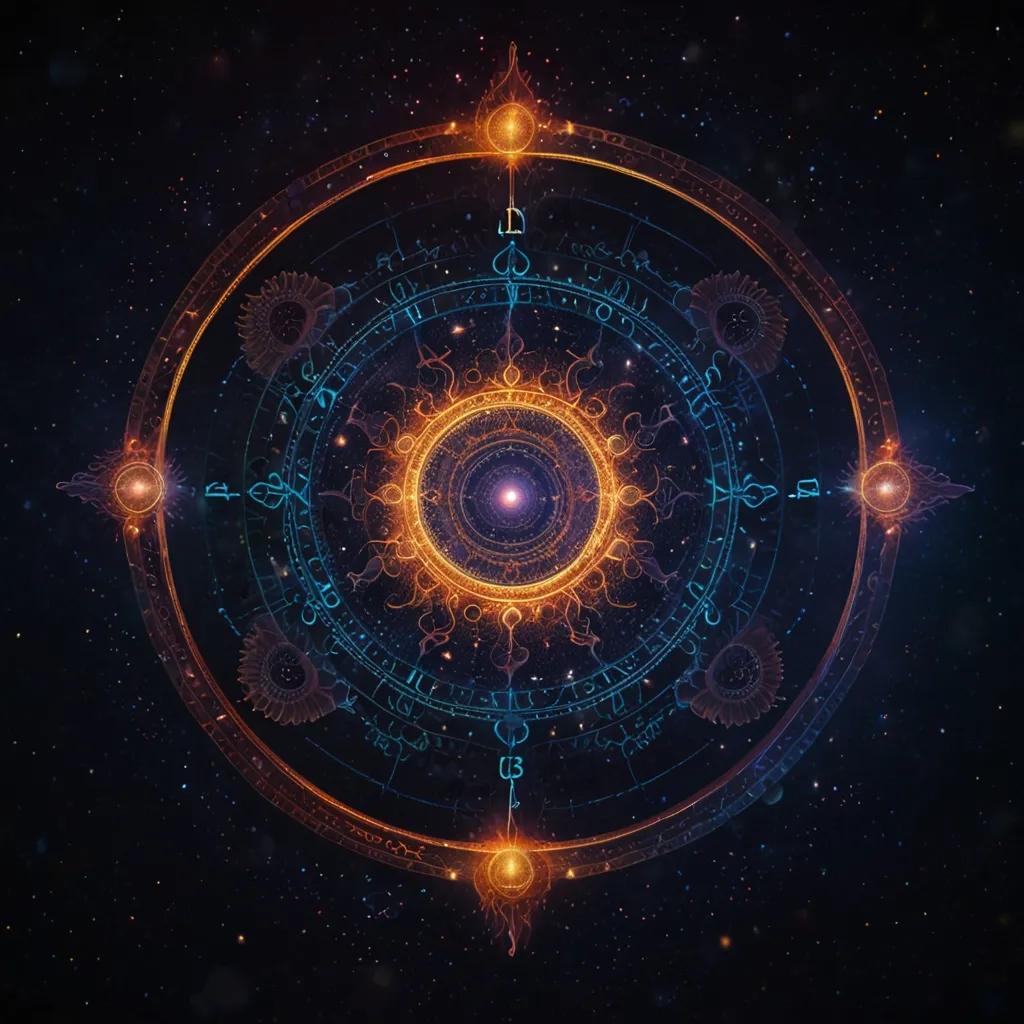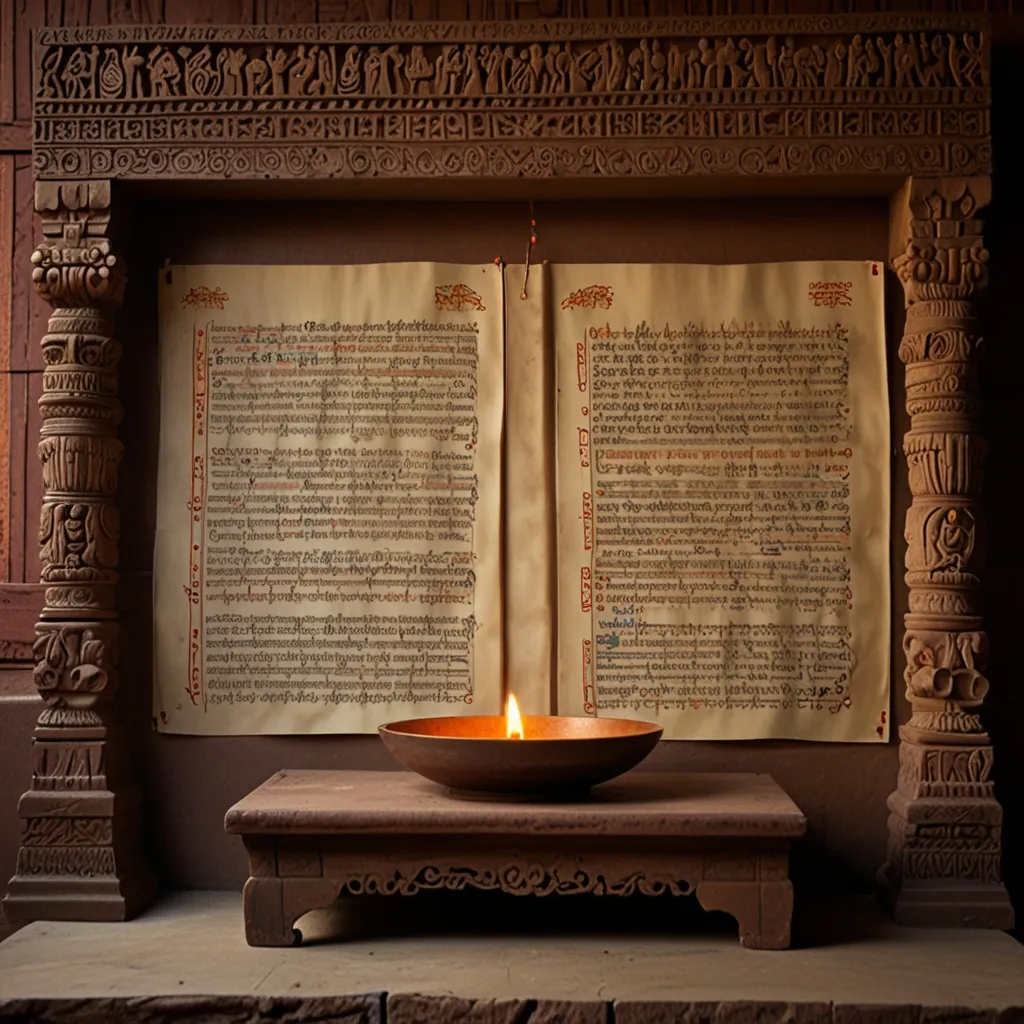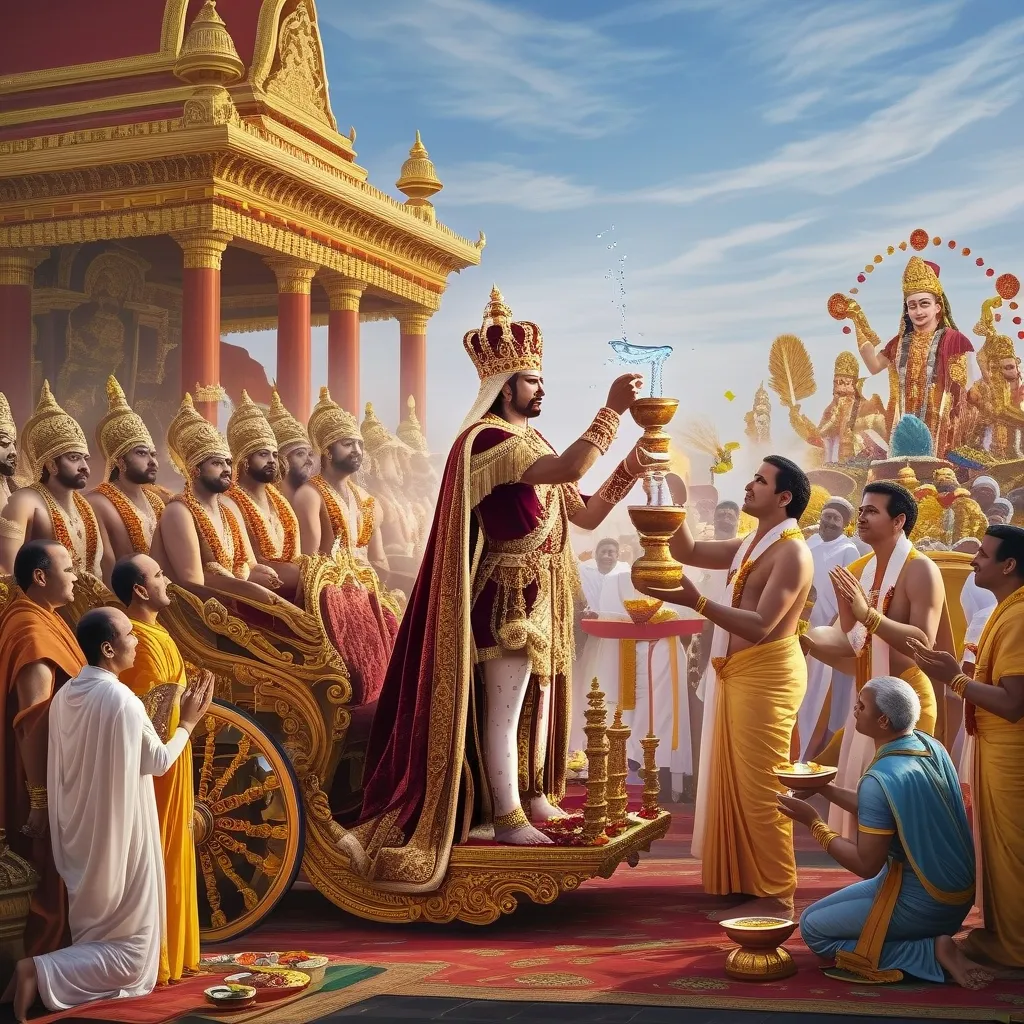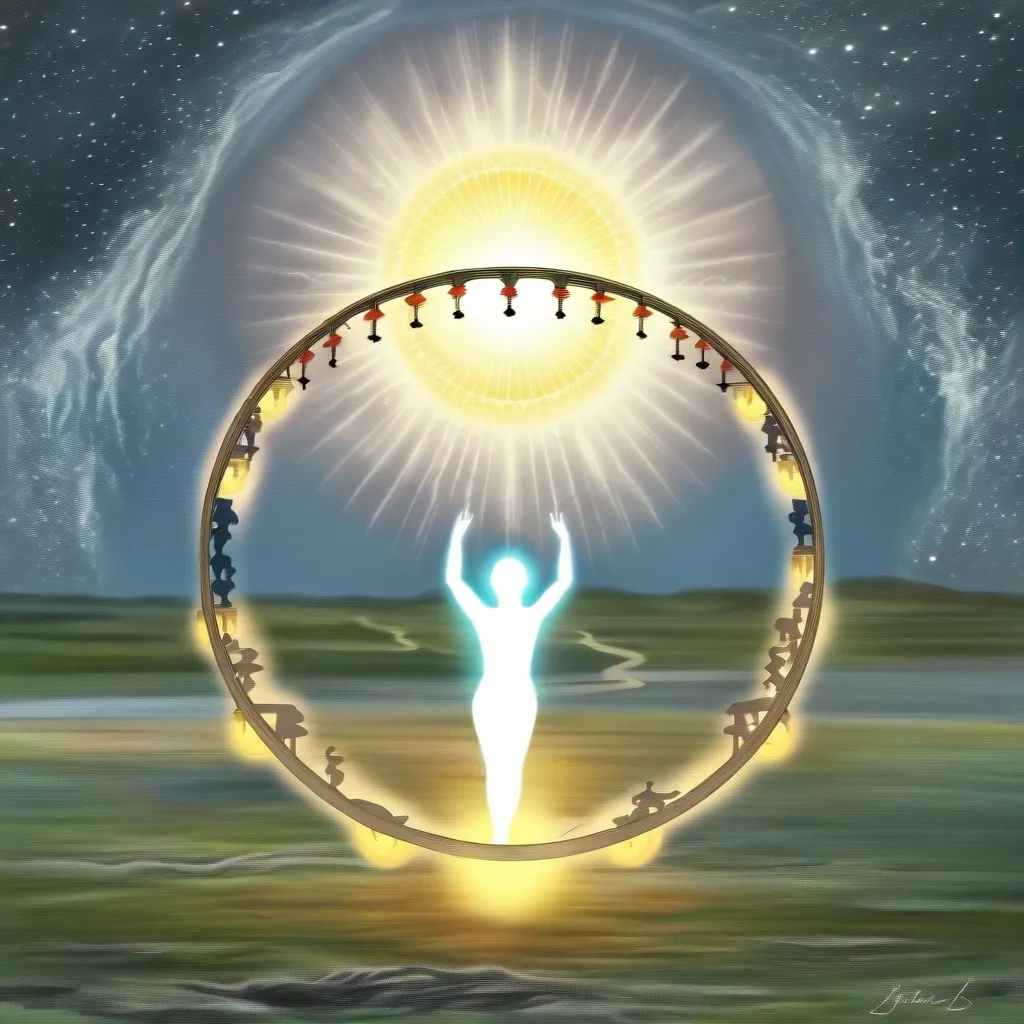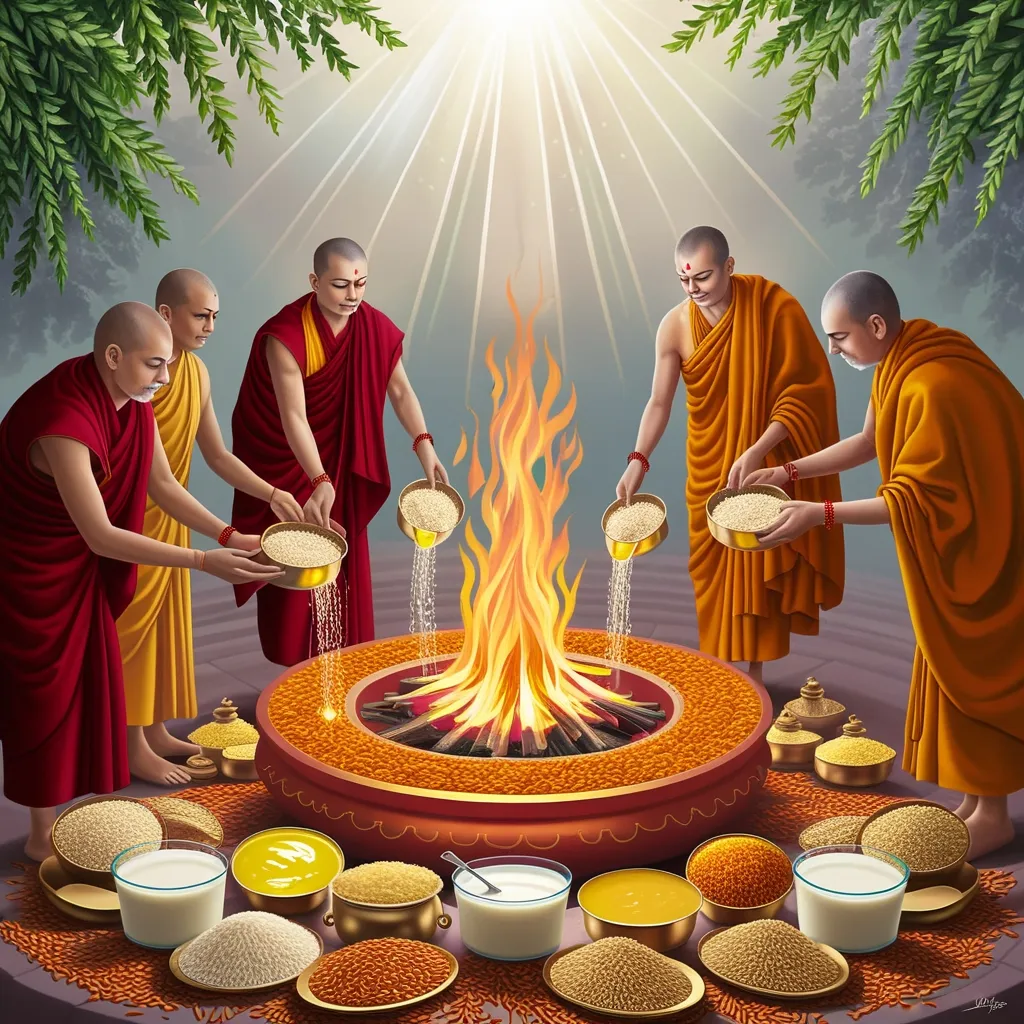The Upanishads are a treasure trove of ancient Indian wisdom, diving deep into philosophical and spiritual ideas. These texts wrap up the Vedas, which are like the holy books of Hinduism. The impact they’ve had on Hinduism and Indian culture is massive and still resonates today.
Central to the Upanishads is the concept of brahman, which is all about the ultimate reality, the core of everything living. Atman is another key idea, referring to the individual soul. The Upanishads tell us that brahman lives within atman, linking everyone and everything together in a cosmic oneness. This theme of interconnectedness pops up throughout these texts.
The Upanishads also chat about the big questions of life – what it means to exist, to be conscious, and to find spiritual freedom. They guide us to look for more than just material success and possessions and push us toward self-realization and deep thinking.
Another biggie in these texts is dharma, which is about doing what you’re supposed to do, based on your role in society, your gender, and your age. It’s not set in stone, changing as your life changes.
The idea of karma is another cornerstone. Every action has its reaction, whether it hits you now or later. This ties into the whole cycle of death and rebirth, called samsara. The ultimate aim is to get out of this cycle through moksha, or enlightenment.
What’s super cool about the Upanishads is that they value inner reflection over just going through religious motions. They urge folks to meditate, think deep, and discover their divine self. This emphasis on personal growth stands out in these teachings.
The Upanishads aren’t just one book but a collection of over 200 texts, each with its own vibe and lessons. They aren’t always a neat, organized read but more like a series of thought-provoking discussions. Often, you’ll see a teacher-student duo engaging in deep conversations, making you reflect on your own life’s meaning.
The phrase Tat Tvam Asi, translating to “That thou art,” nails the idea that we already are what we seek to become. It’s about personal effort and self-discovery, rather than just thinking it through.
Even today, the Upanishads spill profound wisdom that’s super relevant. They dig deep into the essence of existence, consciousness, and spiritual freedom, spotlighting how everything’s connected and why self-realization matters. These ancient texts continue to guide folks on their own journeys for truth and inner peace.
